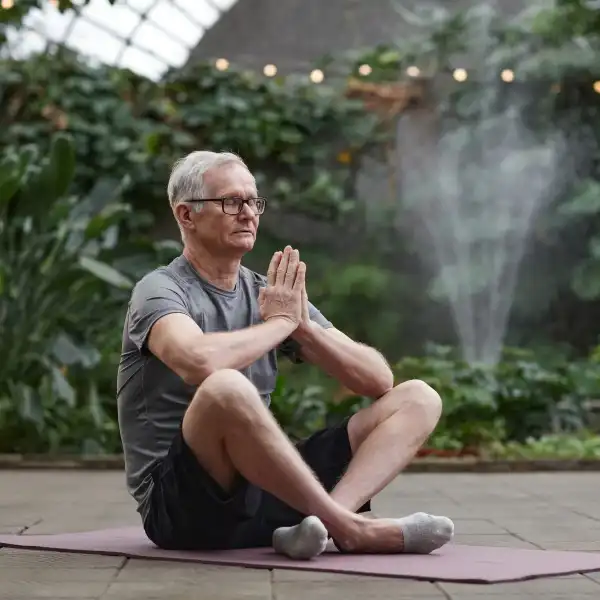Traveling around the world teaching yoga and meditation class has given us special opportunities to connect with nature and others. One of our favorite yoga mats — Yogasana’s cotton yoga mat.
Many of our students are surprised when we give the reason we choose and love this mat.
There are numerous options when choosing a yoga mat for travel and practicing yoga outdoors and it is easy for yogis to become overwhelmed when given all the choices available! How does one begin to sort through all the different yoga mats and pick the right yoga mat material?
There’s a lot that goes through this thought process, and we read up about our options for eco-friendly and sustainable yoga mats.
We would love to share our journey and experience.
Choosing a Yoga Mat
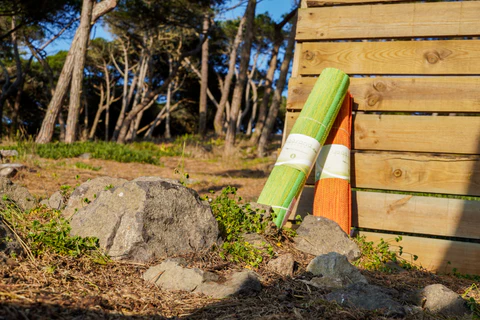
From teaching yoga in Barcelona to attending yoga training in India, we have had so many people ask about the story behind these beautiful hand-woven mats by Yogasana.
When we first opened our Yogasana mats, we felt a special connection to the weavers who made it and the company with their beautiful mission. Getting on the mat for practice, my daughters and I felt peace of mind in knowing how wonderful this completely non-toxic mat is for our bodies and the planet.
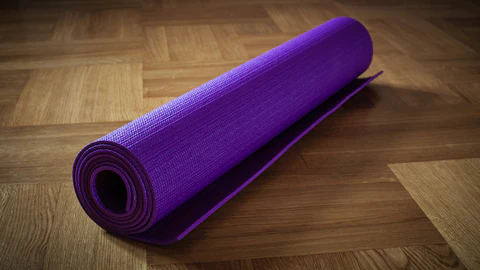
Before we knew about Yogasana, when we would buy a typical plastic mat, it took over a week for it to air out and even then the chemical smell continued to be present.
With our Yogasana mats, we are greeted by the soft warmth of the organic cotton and the vibrant colors, without any chemical odor, which makes the mat very friendly, even comforting, to practice on.
In our travels, we like to practice in nature a lot, we have found that an outdoor practice is much more enjoyable with these mats. Read this blog post to get tips on bringing your yoga practice into mother nature: How to Practice Yoga Outdoors.
Nature Connection
Cotton yoga mats provide a nice cushion on bumpy ground and are very stable on sand. They provide this natural connection to earth.
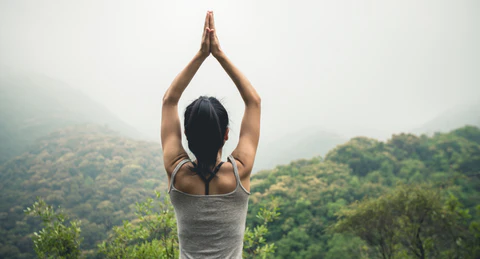
As a mother-daughter wellness team, holding yoga and meditation classes online and in-person as we travel, our aim is to connect people around the globe to support each other in living an empowered life by having a foundation of wellbeing centered in yoga and meditation.
Having a Mat Is Helpful for Outdoor Yoga Practice:
- Creates a smooth surface
- Softness is inviting for resting poses!
- Helps with alignment in yoga poses that require it
- Rolling out/rolling up the yoga mats initiates/ends the ritual of the practice
Practicing Yoga in Nature for Health
We all go to our mats to feel healthy, but there is the chance that we are coming away less healthy because of the synthetic materials that many mats are made of.
Most resting poses in yoga involve being close down to the mat with your face and deepening the breath. But, when doing this on a plastic mat, our body is being exposed to harmful chemicals with every breath.
Examples of Resting Poses That Brings Your Face Close to Your Yoga Mat:
- Child’s pose
- Savasana / corpse’s pose
- Dhanurasana / bow pose
- Paschimottanasana / forward fold pose
- Half bridge pose
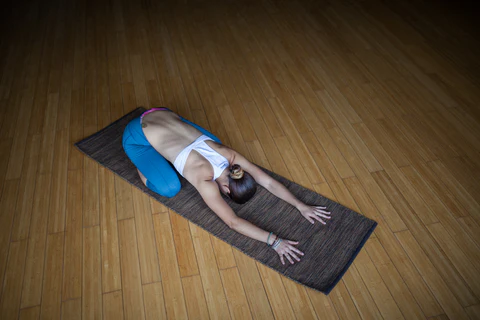
The inhaling of these synthetic chemicals can have a negative effect on our health.
I have always felt a little uneasy bringing my face down to the mat, wondering what I’m breathing in. Some mats have a stronger smell of chemicals than others but even a slight smell makes it difficult to totally relax in a face-down pose. I find myself restraining my breath and reluctant to stay there for very long.
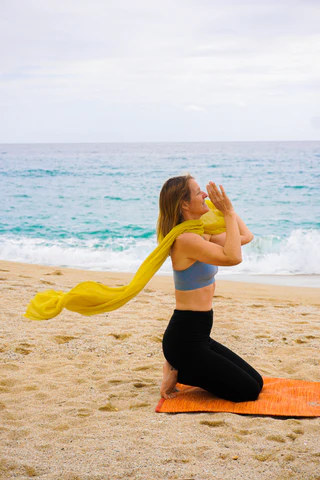
It is good to be aware of not just what we allow into our body through what we eat but also what comes in through our lungs and our skin. When doing yoga on a mat, we are especially vulnerable to the materials in the mat since our breathing is deepened and our pores are opened.
Organic Cotton Yoga Mats
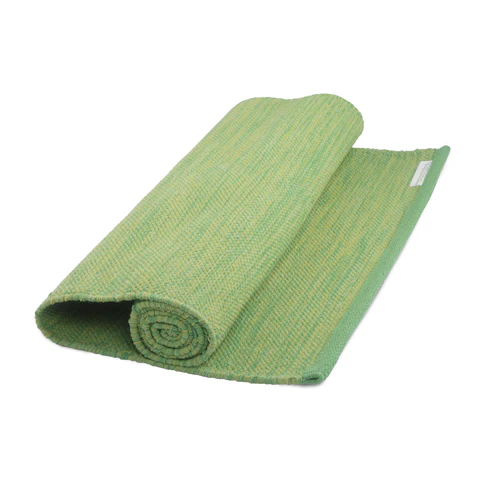
This is never a concern when practicing on our Yogasana mats. A yoga practice isn’t just about a body-mind connection but also our body-mat connection!
Wellbeing also includes what belongings we choose to bring with us on our journey and how they impact our health. This can be on a physical level, if something we have is made from toxic, harmful materials or not, and on a deeper level, if the things we have align with the lifestyle of yoga or not.
Over the past month here in India, we’ve been learning from an Indian philosopher about yoga and its origins. The more we learn about yoga philosophy, the more we see how much Yogasana mats align with its principles, living in harmony with others and the world.
By choosing a mat that doesn’t harm the planet and supports the children of the weavers and that is non-toxic, we support ourselves in feeling healthy mentally and physically.
Conclusion: We love traveling with Yogasana’s organic cotton yoga mats!
We love Yogasana mats because their mission for making sustainable, non-toxic mats aligns with our values of caring for ourselves and the world.
This is a mat that fosters a beautiful awareness of the world around us, through supporting the children of the weavers, using Earth’s natural resources and facilitating a good energetic connection with the ground beneath us when we practice.
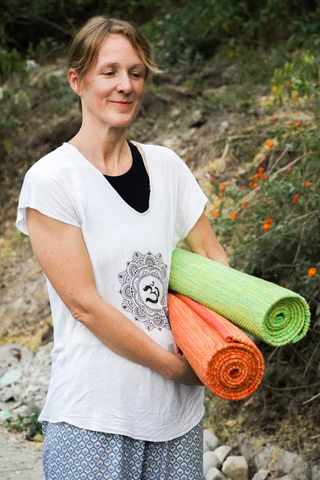
Follow us and learn more about our yoga journey on our YouTube channel: Wellness Wanderers
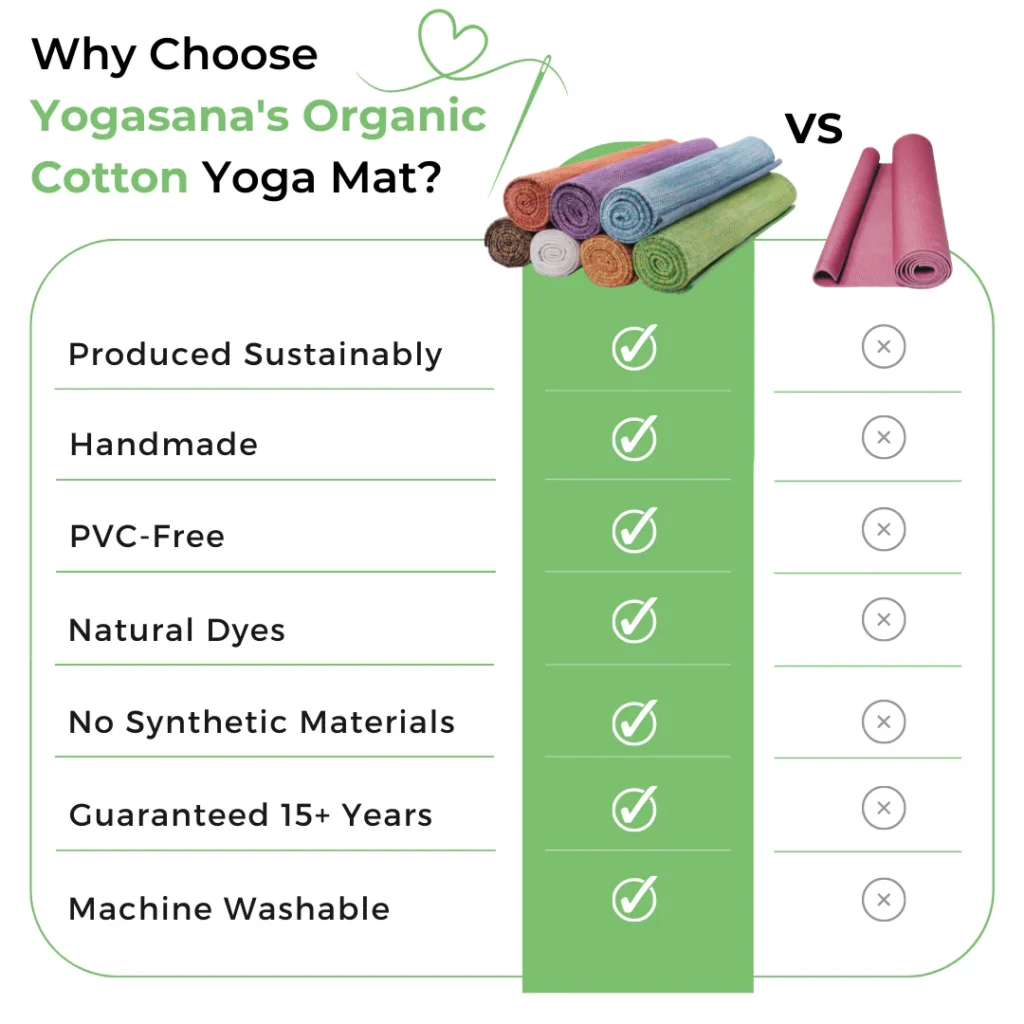 By: Sophia Bartolini
By: Sophia Bartolini




